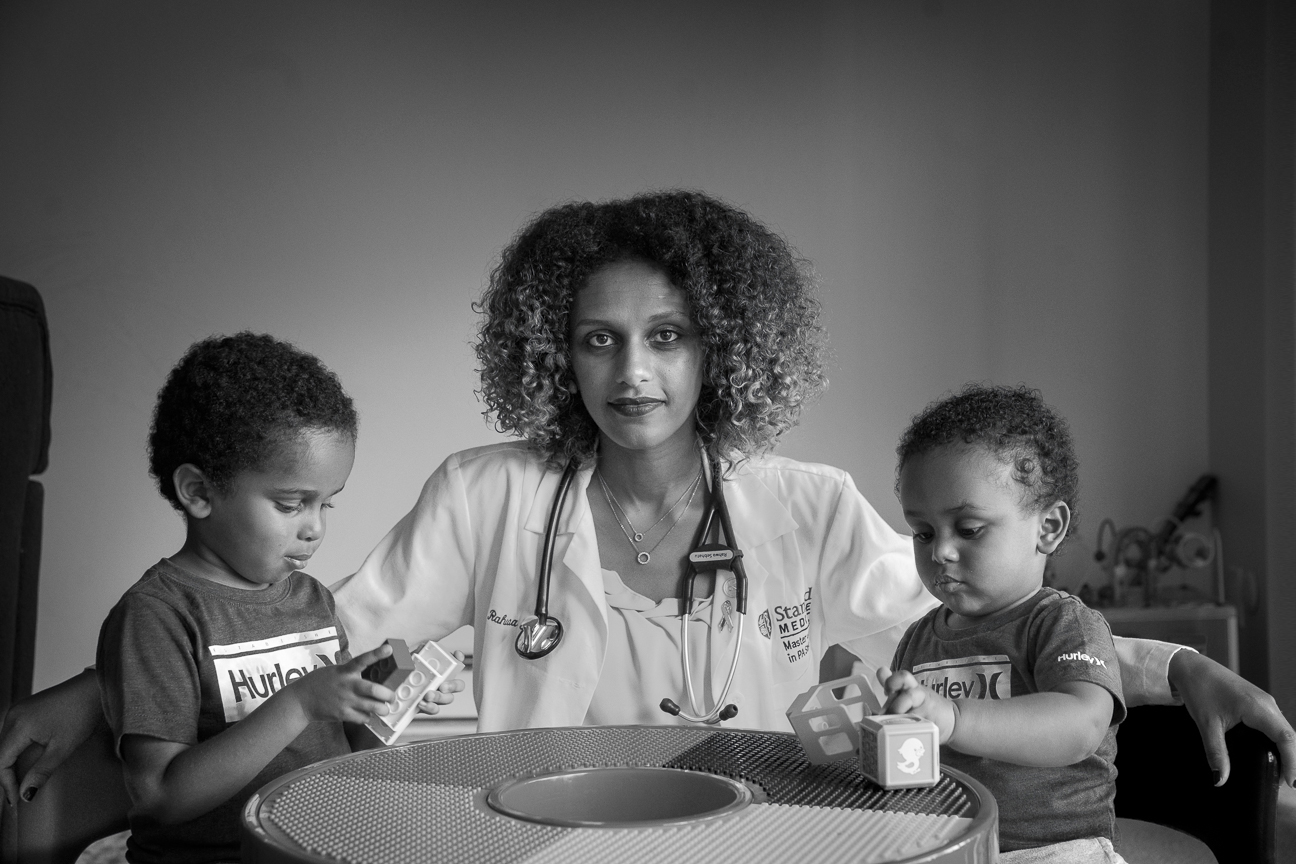
Rahwa Sebhatu
Eritrea
Physician Assistant Graduate Student
My name is Rahwa Sebhatu. I was born in Ethiopia in 1989 and then I lived there until 1999, which was when we were deported to Eritrea because of the war that was going on between Ethiopia and Eritrea. My nationality is Eritrean, but I was born in Ethiopia.
I lived in Eritrea for about ten years until 2009. I came to the US through the Diversity Visa lottery program. It’s known as DV, Diversity Visa lottery program. The application I think is two or three pages. You submit the application and feel very lucky to be chosen. Once you’re picked, you have to submit your documentations, such as birth certificate and your educational background. If you did not complete high school they will not qualify you. Then if they get everything and they see that it’s complete, then they will invite you for an interview. Once you’re called for an interview and they feel that everything you said in the application is verified, then they will grant you the visa.
I was 19 years old when I came to the US. I was a second year pre-med student back home. I came here and I went to community college. Thankfully, I had my records evaluated and they accepted 36 out of 52 units. Whatever I was missing, I took at a community college so I can transfer to a university to get my bachelor’s degree.
Right now, I am doing a master’s in physician assistance studies. I’m in this program where you study to become a physician assistant, which is, actually, a misnomer. You actually aren’t really assisting just a physician, you’re practicing, and you’re providing care to patients. It’s a 30 month long program and I am in my second year now.
I received the National Health Services Corps Scholarship. That’s a national scholarship, which covers your tuition if you intent to go into primary care or to serve in underserved communities. I received that scholarship, which is actually covering my tuition and giving me monthly stipend. As part of that contract, I will work for three years in a community clinic that is federally qualified. That is my passion, honestly. That’s where I want to work. I want to give primary care to the underserved communities.
I am definitely affected by the anti-immigrant rhetoric. I feel that people are more empowered to say things now because the ex-president was just free enough to say anything as he pleases, like on Twitter or in the news media. So I see random acts of violence all around the Stanford campus- there have been hateful slurs and speeches going around. Some people just yell things, “Go back to your country. We don’t need you here.” We hear this even here on this campus.
It makes you wonder; yes, we are all biased. One way or another, we are biased. But then sometimes you have to make a decision if that’s the right thing. Do you really want to act on that bias or do you want to educate yourself to think or to correct your mindset. Because not every bias is correct. You may have been raised a certain way, but the way you think may not be correct. It could be because you don’t understand what the other side actually looks like. I think some people are now empowered to act on their hate and act on their bias, and that is not right. It just makes you wonder what atmosphere our kids are going to grow up in. I’m old enough to understand the difference between love and hate, to actually differentiate what to take in, what not to take it. I try to be optimistic, I try to be positive, but I think of my kids… One is 3.5 and another is 1.5. So I wonder is this really the kind of situation I want them to grow up in.
My hope is that people will embrace differences and understand to see the beauty in the different people around. America; that was how it started. People came from different places and they settled and started to grow and learn in the process and flourish. I think there is beauty in difference. There is beauty in different cultures, different knowledge, and different experience. You should understand that difference is not a threat. Difference is an opportunity to grow.
I want to make it a more inclusive and less biased country. I want to help educate people about discriminations that go on, the implicit biases that people may have, so they can stop that bias before they even act on it or for it. You should not judge a person by just how they look. You have to understand a person first before you place judgment on that person. I hope to educate people by creating a relationship with my patients, with my colleagues. I think small steps go a long way. If I help educate my colleagues, I’m sure they’re going to educate other people out there if I just help them understand my background and who I am as a result of where I’ve come from.
